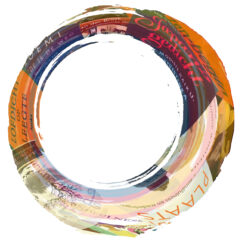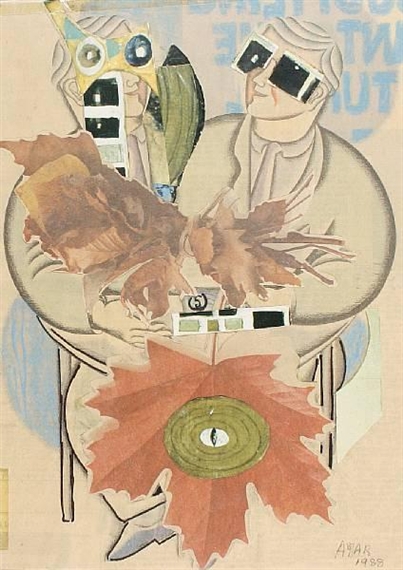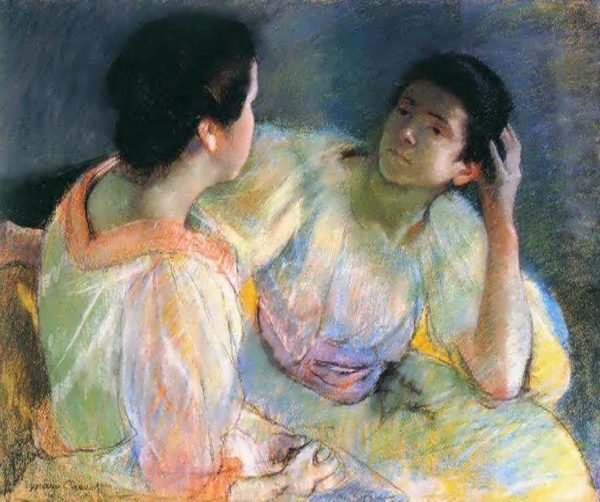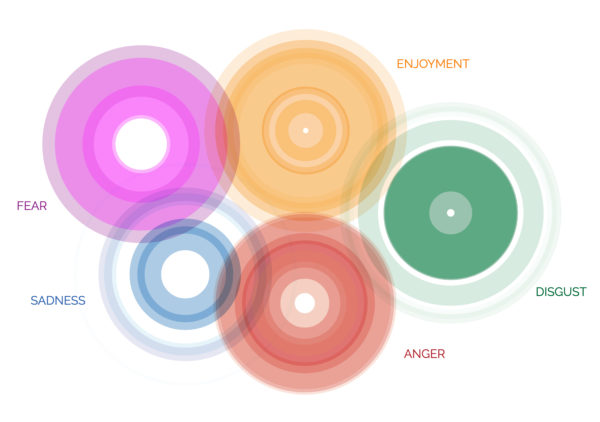Wanneer hij de straten veegde werkte hij langzaam maar gestaag door: bij iedere stap een ademhaling en bij iedere stap een bezemveeg. Stap – ademhaling – bezemstreek. Stap – ademhaling – bezemstreek. Tussendoor bleef hij soms een poosje staan en keek peinzend voor zich uit. En dan ging het weer verder – stap – ademhaling – bezemstreek – – – –
Terwijl hij zo doorwerkte, voor zich de vuile straat en achter zich de schone, kreeg hij vaak grootse gedachten. Maar het waren gedachten zonder woorden, gedachten die je net zo moeilijk onder woorden kunt brengen als een bepaalde geur, die je je net nog kunt herinneren of een kleur waarvan je gedroomd hebt. Wanneer hij na zijn werk bij Momo zat, legde hij haar zijn grootse gedachten uit. En omdat ze op haar bijzondere manier luisterde, kwam hij los en vond hij de juiste woorden.
Zie je, Momo, .. het zit zo. Soms heeft men een hele lange straat voor zich. Men denkt die is zo vreselijk lang – dat krijgt men nooit voor elkaar. Hij keek een poosje zwijgend voor zich uit, en toen ging hij verder: ‘En dan begint men zich te haasten. En men haast zich steeds meer. Telkens wanneer men opkijkt, ziet men dat men maar niet opschiet. En men spant zich nog meer in en men krijgt het benauwd en tenslotte is men helemaal buiten adem en men kan niet meer. En de straat ligt nog steeds voor je. Zo moet men het niet doen.’
Hij dacht een tijdje na. Toen sprak hij verder: ‘Men moet nooit aan de hele straat tegelijk denken, begrijp je? Men moet alleen aan de volgende stap denken en de volgende ademhaling en de volgende bezemstreek. En steeds weer alleen aan de volgende.
Weer hield hij op en dacht na voor hij er aan toevoegde: ‘Dan heeft men er plezier in; dat is belangrijk, dan doet men zijn werk goed. En zo moet het.’
En nog eens na een lange onderbreking vervolgde hij: ‘Opeens merkt men dat men stap voor stap de hele straat gedaan heeft. Men heeft het niet eens gemerkt en men is niet buiten adem.’ Hij knikte bedachtzaam en eindigde met de woorden: ‘Dat is belangrijk.’
Uit: Michael Ende, Momo en de tijdspaarders, Lemniscaat, Rotterdam, 1975; p.32-33.




